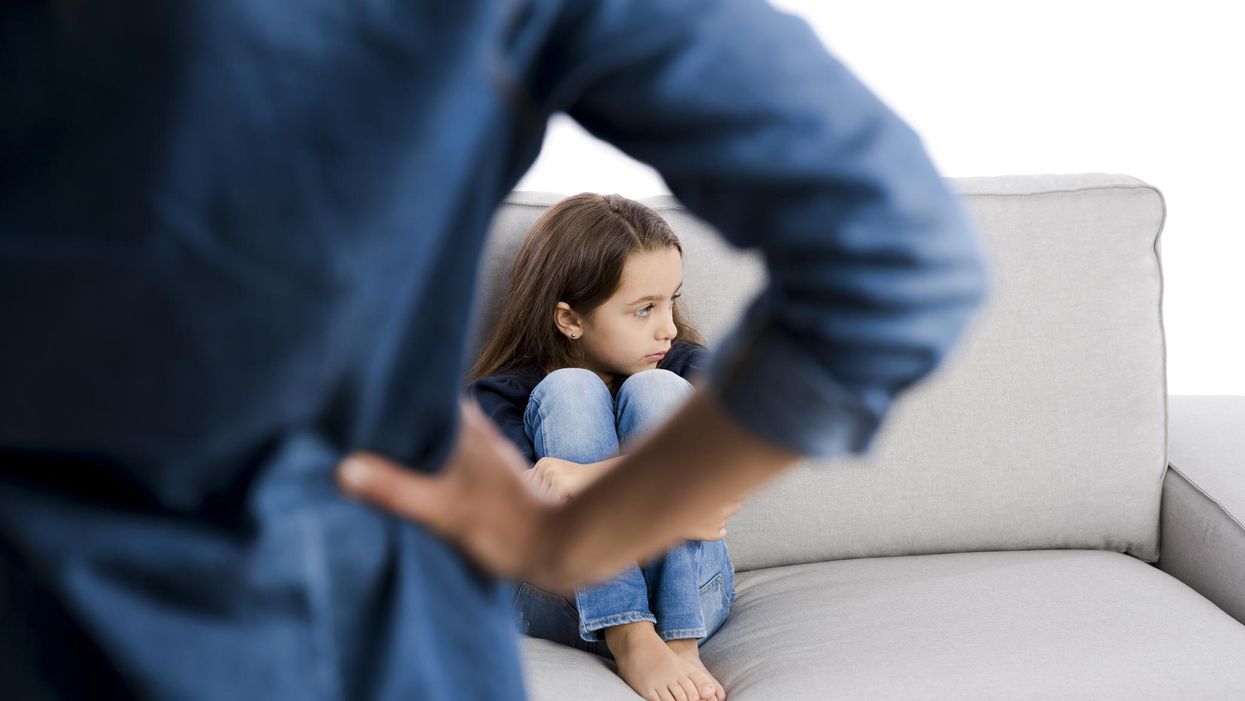
erikreis/Getty Images

The impact absent fathers have on the social and emotional development of children has been a topic of discussion for decades. Dads who abandon their responsibilities to protect and provide for their children are rightly criticized by those who care about the well-being of kids.
There is another side of the coin regarding the health and wellness of our children that gets a lot less attention. There is a growing body of evidence that in certain circumstances, mother presence can be just as damaging to a child as father absence.
Two videos that went viral last week serve as useful examples. One was a TikTok video of a woman giving her smiling toddler a meal that included the phrase “U PISS ME OFF” spelled out with alphabet-shaped french fries. Several people in the replies noted that the child was too young to understand the message. Others felt that children can pick up on the energy and attitude adults have toward them.
The second video showed a young boy swinging around a pole in his home with his legs spread open in the air. Many of the people replying on Twitter thought the child’s moves looked like those of a stripper. Others thought it was just innocent fun and no different from what kids do on the playground.
Both videos are a microcosm of toxic mommy syndrome (TMS), a condition in which mothers across ethnic and class lines replace the natural urge to protect and nurture their children with contempt, selfishness, and apathy.
I have no doubt that many women are stressed out and overworked at home, especially as some have had to balance child care and working from home during the pandemic. Unfortunately, TMS is far from a new phenomenon.
Feminists have been selling women the lie that marriage is oppressive, children are a barrier to self-fulfillment, and the home is a prison for decades. Women make up about 60% of college students and the majority of workers in many industries, but they also continue to be the primary caregivers for their children.
The tension created by the belief that women should have everything they want in their careers and family lives and the reality that they don’t is why the Maternal Grievance Industry is doing such big business. This is how essays about divorce as an act of “radical self-love” that makes women better mothers get printed in the Atlantic and the New York Times. It is also what fuels mommy wine clubs and other online communities that make children sound like chronic diseases that require medicinal coping strategies.
If traditional media has provided a platform for mothers to cast their children as objects of contempt, social media has made it possible for women to use their kids as sources of content. This is why videos of children twerking, cursing, and being humiliated in the name of discipline are so common on the internet.
Children are defenseless and have no say in how their image is used online. Everyone loves to see pictures and videos of kids playing and enjoying the joys of childhood. The problem arises when their misbehavior, innocence, or embarrassment is used by narcissistic adults to generate web traffic and build a brand.
Motherhood is one of the most important vocations in the world because at its core is the development and nurturing of life, both inside and outside the womb. That responsibility comes with the potential to produce both good and bad fruit. Everyone knows people who praise their mothers for being sources of love, kindness, and inspiration. Less known, or less discussed, are the people who must navigate relationships with anxious, neurotic, angry, spiteful, and indifferent mothers. Both groups leave an indelible mark on their kids.
Children’s breath always smells of their mother’s milk.
This reality has a multi-generational impact. Mothers who resent their children are unlikely to build healthy bonds with them. For girls, that means not receiving the wisdom and guidance needed during the transition from adolescence to adulthood. The Bible instructs older Christian women not to be addicted to wine and to teach younger women to love their husbands and children, be self-controlled, and be good managers of their homes. The ruling class reads those words and hears "domestic slavery," but people should rethink taking advice from anyone who uses the term “reproductive justice” as a euphemism for abortion or thinks marriage is a function of white supremacy.
For boys, a bad relationship with mom can portend difficulties with other women in the future. I have seen this play out with single mothers who felt they had to compensate for the father who wasn’t there. Sometimes it comes out in overbearing, belittling behaviors. Some mothers curse their sons and tell them all the things they won’t do in life. They unwittingly punish the son for the sins of the father. This behavior can plant a seed of confusion for boys who develop into men who hate women but are sexually attracted to them. That dynamic leads to its own cycle of chaos and dysfunction.